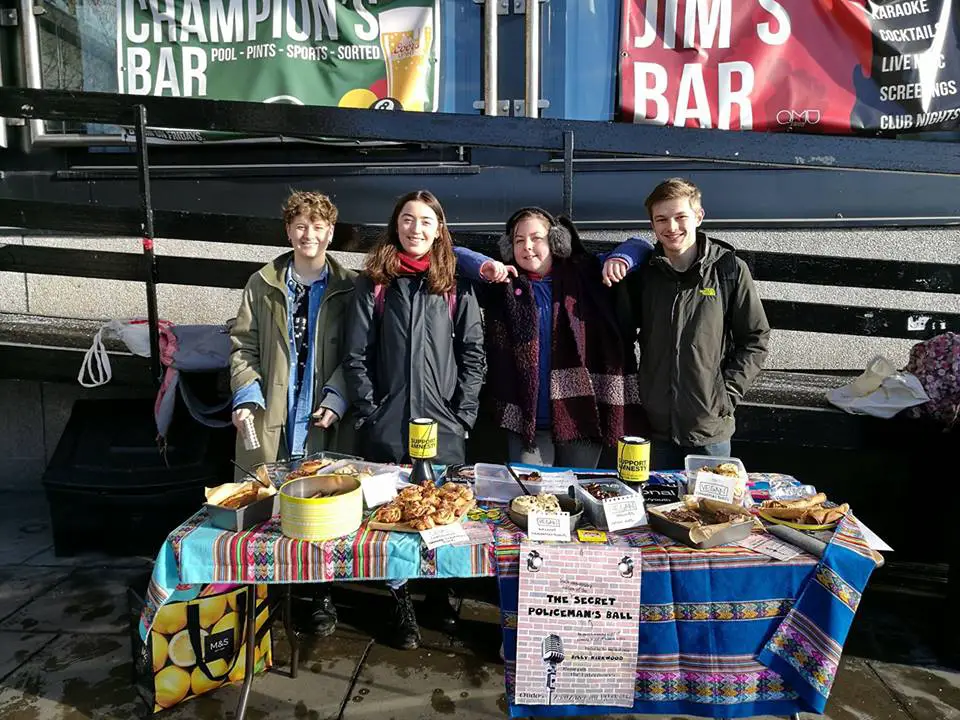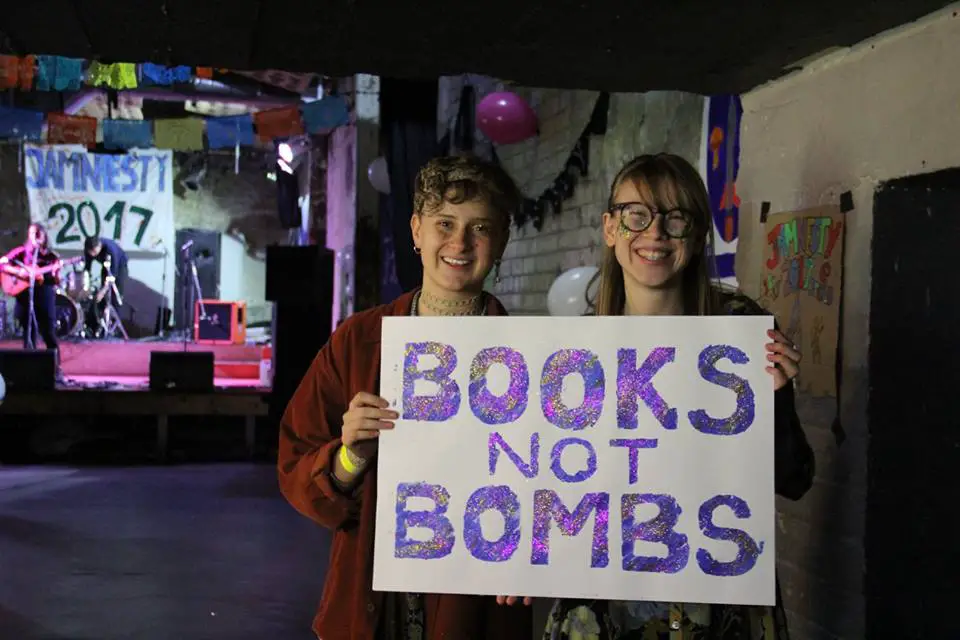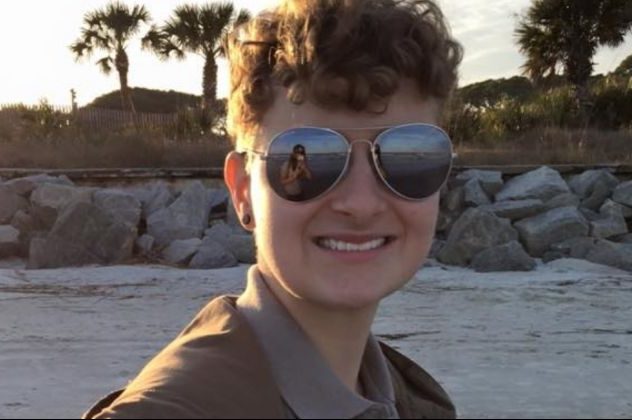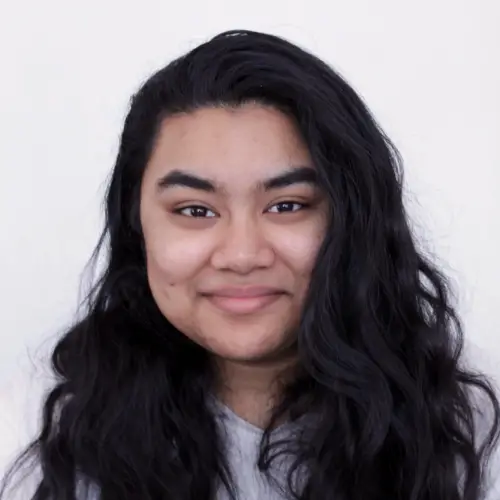Ellinore Folkesson, a sophomore at Glasgow University, takes on more than just academics at school; with her impressive grades and passion for justice and equal rights, Folkesson is a regular during protests and is heavily involved with her school’s political organizations, especially Amnesty International.
As the newly elected president of Amnesty International, she has been a voice of reason and discusses human rights issues with the rest of the committee. The faults she saw within society encouraged her to get involved and push for change alongside many others.
Folkesson’s involvement on and off of her campus has been yielding results. In fact, her campus hears her voice and slowly but surely implements changes. However, she’s made it clear that this is only the first of many steps needed to create a better society and a better campus.
Grace John: How did you get involved in politics, and what made you so passionate about politics?
Ellinore Folkesson: To me, politics are a way of understanding how the world works. I first got into politics through human rights campaigning and discussing LGBTQ rights at Villanova, which is ironically a very apolitical campus.
I gradually sort of realized that most of the things I wasn’t happy with could be changed through various political decisions — it’s just about making people happy, which makes it sounds a lot easier than it is.
Political campaigning and activism then became a channel for my grievances with how society is organized and how things work and the most viable and satisfactory way to make a change — even if it’s just a small one. Baby steps.
GJ: Has there been a personal experience regarding protesting that has affected you?
EF: To be honest, the industrial action over pension reforms at my uni this semester has been very formative. I think it is one of the first times I’ve seen direct and very tangible results from the activism I’ve been a part of.
The gratefulness expressed by staff members for the student support on the picket line and by putting on different events (and occupying a room) has been overwhelming. It really gives you a sense meaning and belonging — more than anything, we’re trying to create a community.
Specifically, the occupation of the Senate Room here at the university was probably the most amazing bit of activism I’ve ever been part of. It was a response to senior management essentially ignoring us during the industrial action. That attitude changed quickly when 14 of us went into their most prestigious meeting space.
Apart from getting our demands as students listened to though, it was just a brilliant experience. Not saying occupy for the experience, but it really contributed to my understanding of how to organize under stress, make snap-decisions and be a united group, even under pressure.
Being in an environment like that makes you brave and gives you that extra push to stand up for what you believe in.

GJ: You were elected as president of Amnesty International; what’s that been like?
EF: I was just elected president and the handover for our committee in late March — hopefully, it will be a good experience! The other people that were elected have all been around our Amnesty International group for a while though, and they’re all good people, so I have high hopes.
This past year, I’ve been one of our two campaigns coordinators; our main responsibilities are organizing weekly meetings. The Uni Amnesty International branch is mainly a kind of information hub, so we focus each meeting on a different human rights issues. It’s been a brilliant opportunity to deepen my understanding of a range of different issues, and we’ve had a lot of inspirational speakers.
Last semester, our local representative for the Scottish Parliament, MSP Patrick Harvie, visited us to talk about fracking and climate change in Scotland, and that was really something. I think he appreciated seeing that some of his constituents actually are interested in what he does, especially young ones. Millennials usually aren’t the most politically active bunch.
GJ: There’s a protest going on at your university; in your words, how would you explain what it has been like? What’s been the response?
EF: I think overall, the student response has been really good. The students, including me, that started the Strike Solidarity movement were originally just really unhappy with the way the student body was informed about the strike; a lot of people barely knew it was happening or why it was happening.
And obviously, realizing that half of your classes are canceled without having accessible information as to why your lecturers took that step caused a lot of frustration.
We’ve focused a lot on just getting the student body knowledgeable and managed to push our senior management to send out really comprehensive informative emails about the reasons behind the strike and guides to how students can get help if this caused disruption to their studies.
The response from senior management, such as the vice chancellor, has generally been polite, and they’ve made attempts at appeasing us. If anything, I think they respect that we have managed to organize outside of the normal student union structures and that we’re standing up for ourselves and the university staff.
GJ: What do you wish to do or pursue after graduating?
EF: That’s a difficult question! At the moment, I would like to do at least a master’s degree, potentially focusing on environmental law and sustainable development. I think climate change should be at the center of human rights discussions, but I would potentially like to focus on analyzing climate change legislation and government policy.
But I am really not sure; it changes with my mood. Only last year, I was convinced I wanted to work for Amnesty International, so it might change again before I’ve graduated. I’ve still got time. My plan B will always be setting up some kind of commune, focusing on sustainable living and self-sufficiency. But I would need some funds to do that.
GJ: What are some goals that Amnesty International hopes to achieve?
EF: Here in Glasgow, we’ve focused on the university’s investments. We specifically focused on the fact that the uni has over £500.000 invested in BAE system, which is the biggest weapons and arms manufacturer in the UK.
BAE is really controversial at the moment because they have a lot of trade deals and ongoing collaborations with the Saudi Arabian regime, and their fighter jets are being used in bomb raids on civilians in the Yemen conflict.
Amnesty International is also running a campaign to try to make the UK government stop approving weapons trade deals with Saudi Arabia, so we’re working on the back of that campaign. We’ve mainly focused on planning and researching this year, so hopefully, next year’s campaign coordinators will want to take that campaign up.
GJ: With all that you’re involved with, do you find that it hinders your academic life?
EF: Yes, a bit. Normally, I wouldn’t say so, but I really struggle to do anything half-heartedly, so with the strike movement, I got really caught up in organizing it, and everything else just ended up taking the back seat.
My deadlines really have been breathing down my neck. However, I think that all serious work with societies or campus newspapers and so on do require a lot of extra effort, and it’s something that you have to be aware of when you sign up for it.
It does, however, give a completely different set of skills to do things like these; I think my political thinking, philosophy and critical awareness of why our society looks the way it does has increased a lot this semester — I feel a lot more mature intellectually.
My ability to work with people and accommodate different types of personalities, and in general juggle a lot of different projects at the same time, has definitely improved. I’ve learned a lot about myself that I don’t think I could’ve learned in a lecture hall. And somehow, I do get everything done more or less on time. Magically.
To be completely honest though, the more political activists I meet, the more I realize that most of them are incredibly ambitious. I almost feel like I’m the lazy one, which doesn’t happen very often.
GJ: I know that you were selected to speak in France regarding peace amongst students in Europe; how was that experience? Has it influenced you personally?
EF: It was a two-week course funded by the European Parliament about migration and how to talk about migration in a multicultural setting, specifically relating to the asylum application crisis in Europe right now.
It is always interesting to hear what people from other countries and political backgrounds think about things like migration, as it is such a contentious and emotional topic for many. There were a lot of heated discussions! What will stay with me were real stories of migration, both from people coming to Europe as refugees and as economic migrants. It was often quite heartbreaking.
We lived collectively during the two weeks, so we cooked together, ate all our meals together, went to all our lectures together and had a lot of group bonding activities. So, we got to know each other really well, and that made the stories people shared even more touching.
It was also awesome to see how well people from completely different parts of the world and from different cultural backgrounds can work together if they want to. It really highlighted that there’s a common humanity in all of us. Probably the highlight of my year, to be honest, but I was completely exhausted afterward.

GJ: You’ve had experience living in the U.S. How does the political atmosphere here compare to where you live now?
EF: I think my experience in the U.S. was very context-specific. Villanova, being a middle class, Catholic university, was a complete culture clash for me. I had a lot of interesting political discussions with Villanova students, but we often came from completely different political perspectives.
Where I live now, Glasgow, is a city with a lot of grassroots political movements and is a very leftist city as a whole, so the contrast between where I was in the U.S. and where I am now could barely be bigger.
The biggest difference is probably that many things that we take for granted in Sweden and Scotland, such as free healthcare and subsidized or completely free education, are really quite radical concepts in the U.S. What is seen as a more or less centrist position here is radically left in the U.S. That really surprised me! But also led to a lot of interesting conversations.
It did broaden my horizons to have those discussions, as it really quite did solidify my own rather leftist political ideas to see a country that is, to such a large extent, based on a free-market ideology.
GJ: What’s a personal goal you wish to achieve in your academic career if you haven’t achieved it already?
EF: I don’t know if I have achieved that much, really. I would like to graduate with good grades and recommendations. With the wave of student activism in the UK, I would also like to contribute to a legacy of a more political student body and hopefully a democratization of the university structure.
But those are pretty big goals, I guess. It would be sweet if I could leave Amnesty International more inclusive than it is. More than anything, I just want to learn and develop my critical thinking.
I’m hoping to get a data analysis internship this summer working with rehabilitation of criminal offenders. It would allow me to learn more about Scotland-specific issues and actually utilize what I’ve learned in the classroom in a real-life setting. That would be sweet.

















